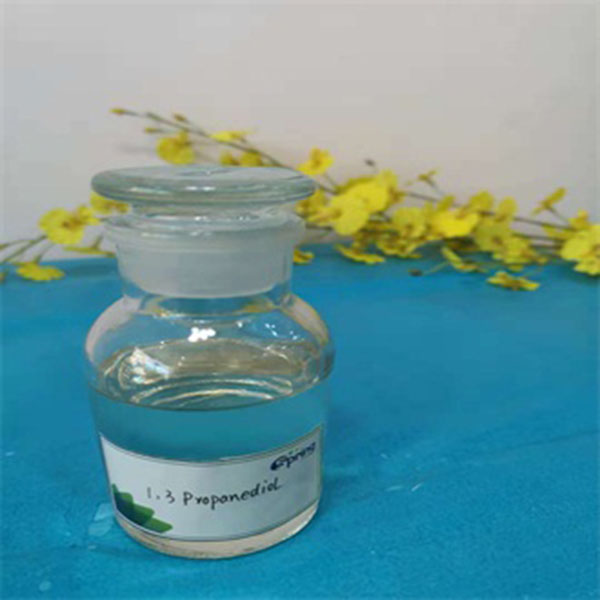Propanediol, also known as 1,3-propanediol, is a colorless liquid that’s naturally derived from corn glucose, or corn sugar. It can also be synthesized in a lab for use in personal products. Propanediol is water-miscible, which means it can fully dissolve in water. The two can create a uniform, consistent solution when combined.
In terms of chemical makeup, propanediol is an alkanediol, which consists of an alkane and a diol. A quick chemistry lesson: An alkane is a chain of carbons with hydrogens attached. A diol is any compound that has two alcohol groups. Finally, the prefix prop- refers to three carbon atoms in that chain. Prop + alkane + diol equals propanediol.
So, propanediol is a chain of three carbons with hydrogens, plus two alcohol groups attached. The location of each alcohol group matters, too. In this article, the propanediol we’re referring to has one alcohol group on each end. That’s why it’s called 1,3-propanediol ecause the alcohol groups are on the first and third carbons.

Benefits of Propanediol for Skin
The reason you can spot propanediol on so many different product labels is due to its versatility. It primarily functions as a solvent, propanediol also has impressive sensory qualities and various other benefits when used in skincare.
Dissolves ingredients:propanediol is considered to be an excellent solvent for harder to dissolve ingredients, like salicylic acid or ferulic acid, for instance.
Decreases viscosity:a viscosity reducer is helpful in a variety of cosmetics, like conditioner, shampoo, foundation, mascara, body wash, hair spray, cleanser, and moisturizer, because it allows the formulas to flow well and makes them easier to use on the skin and hair.
Improves humectancy: As a humectant hair and skin conditioner, propanediol pulls moisture into the skin and encourages water retention.
Prevents water loss:Thanks to its emollient properties, propanediol might soften and smooth skin by reducing water loss.
Safe for acne-prone skin:foam cleansers tend to use fewer surfactants (the cleansing chemicals that remove dirt and oil from your skin), which makes them ideal for acne-prone or sensitive skin types. Propanediol can increase foaming in a product, so those prone to breakouts might prefer products containing the ingredient for that reason.
Enhances preservative efficacy:propanediol can also function as a preservative booster in skincare products.
Gives the product a lightweight feel:Not only does propanediol contribute to the function of a product but also its consistency.The ingredient gives products a light texture and a non-sticky feel.
How to Use It
Because propanediol has many different uses and is included in a wide variety of formulas, how it should be applied largely depends on the specific product, so use as directed by your dermatologist. But unless your skin is sensitive to it, propanediol is safe to incorporate into your skincare routine on a daily basis.
Springchemis a well-known supplier of unadulterated 1,3 propanediol for various industrial applications, such as food additives, cosmetics, adhesives, etc. Contact us for your 1, 3 propanediol needs for your healthcare-related products, and you will not regret partnering with us.
Post time: Jun-10-2021

